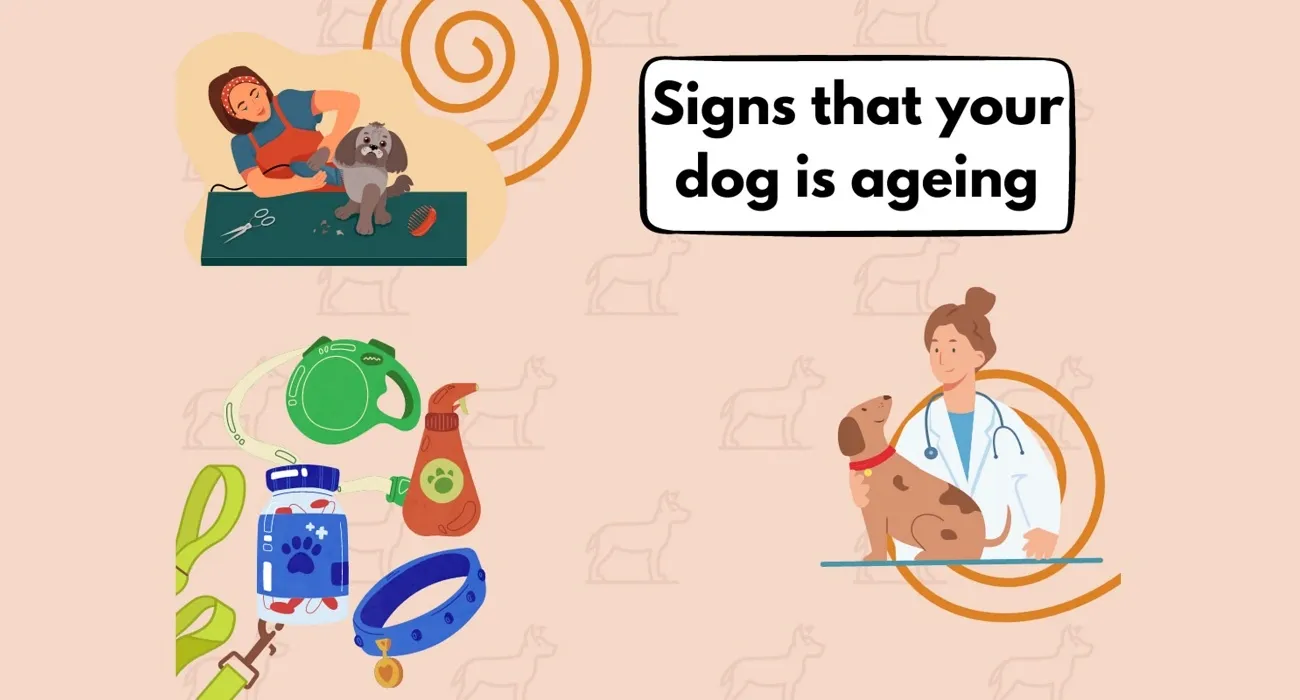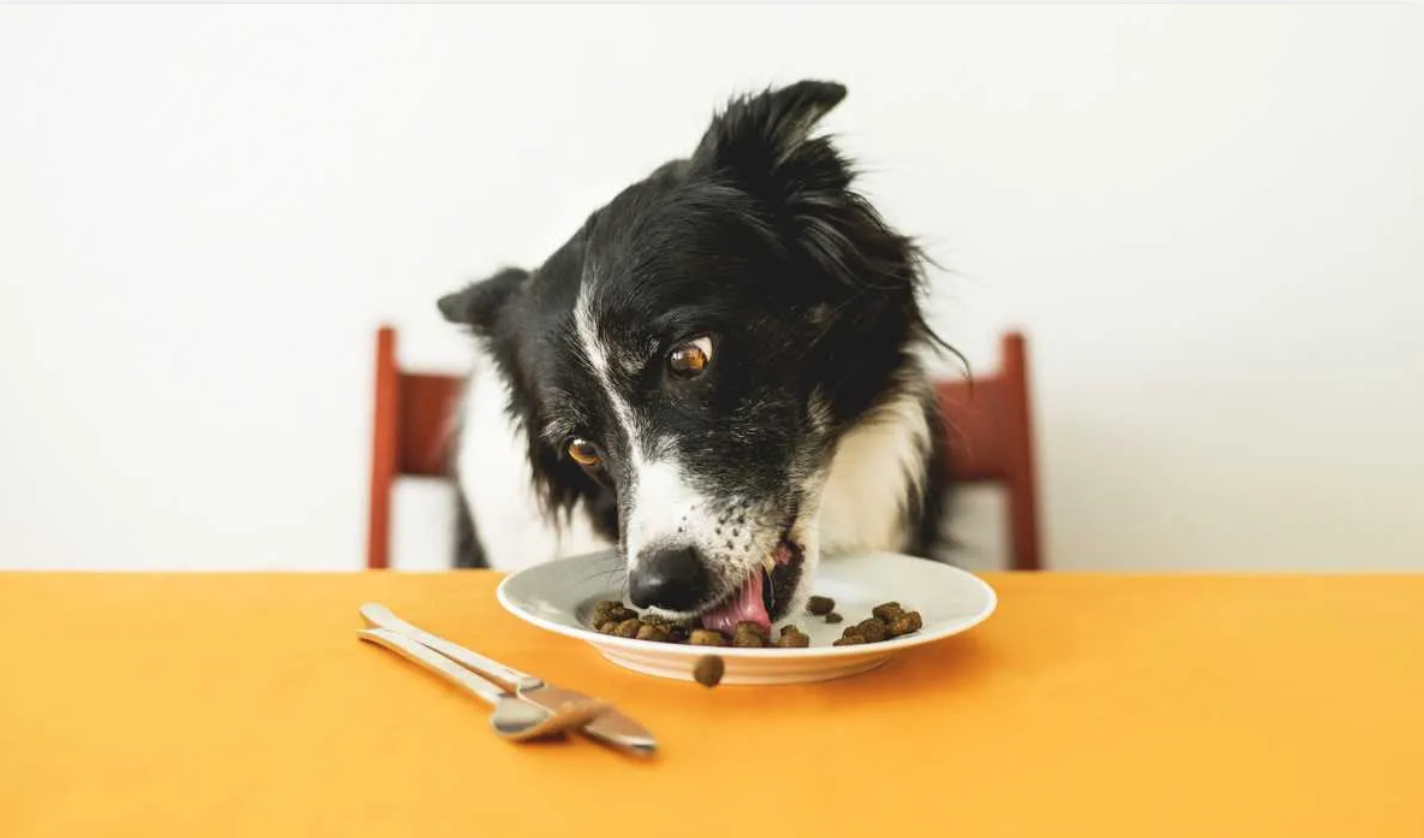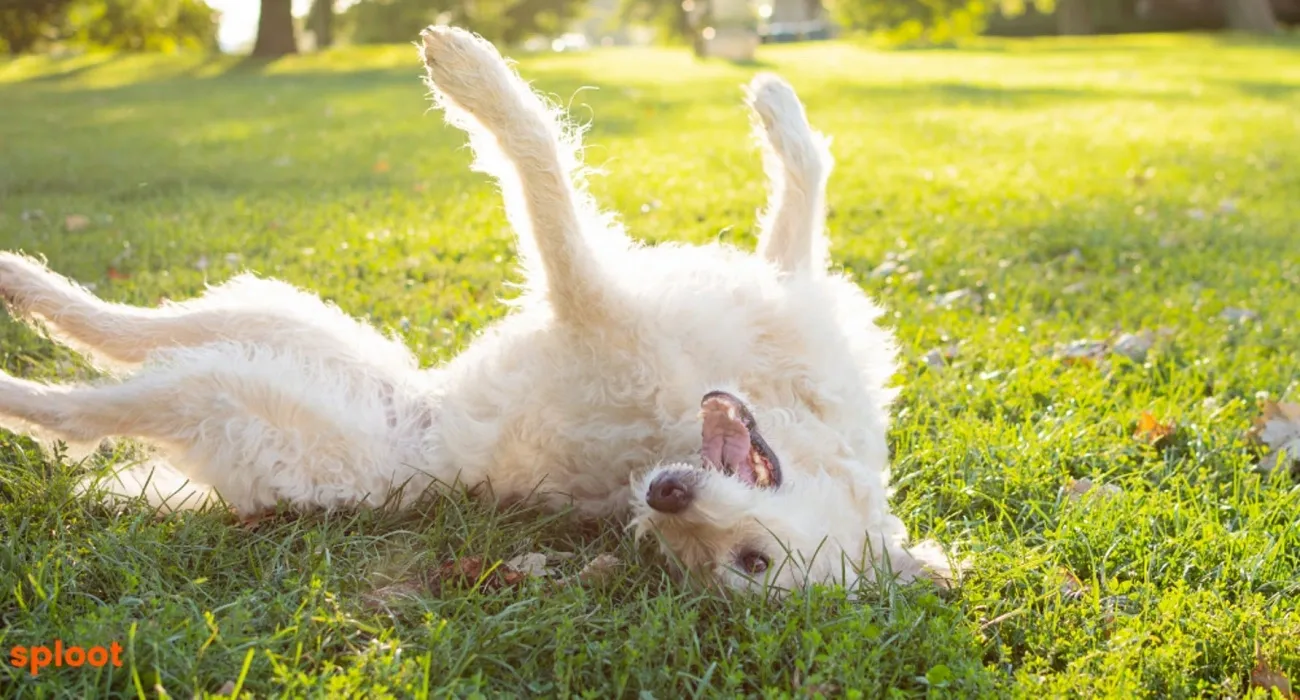Dogs experience the effects of ageing just like humans do. Their health can deteriorate and they become more prone to infections.
Some dogs in their old age may become less active, move slower, and gain weight. While some dogs age gracefully, others might change their temperament. Older dogs may be more likely to worry if they are startled by a swiftly approaching, friendly hand, for example, as their hearing and vision decrease with age, raising their anxiety levels. Therefore it is crucial to monitor your dog’s health during this period. Keeping in check their physical health as well as their mental health is the key.
What transpires when dogs become older?
As a dog ages, less energy is used, and fat deposits frequently increase. For this reason, we see more lipomas, or fatty lumps, in older dogs. Your dog's body weight may increase owing to insufficient activity and excessive consumption, or it may decrease due to illness or poor digestion. Loss of skin suppleness, a duller coat, and the sporadic appearance of white hairs on and around the muzzle are common skin changes.
What are the symptoms of my dog's ageing?
Age-related symptoms (and their typical causes) might include:
· Diminished appetite
· Decreasing weight
· Lumps or pimples
· Lethargy
· Intolerance to exercise
· Increased fatigue
· Difficulties peeing or pooping
· Coughing
· Deteriorating mental clarity, losing balance
Sadly, elderly dogs can develop cancer. Many senior female dogs experience urinary incontinence because as they age, the nerves regulating the bladder weaken and the outflow valve doesn't fully close, causing unintentional pee discharge and dampness where they are resting.
Dogs with heart murmurs may have a leaking heart valve, which is frequently asymptomatic for years but can occasionally cause coughing and shortness of breath. This necessitates more research, such as ultrasonography and x-rays.
Behavioural consequences of ageing
Similar brain alterations that affect behaviour in individuals with Alzheimer's disease can also occur in dogs. Call your veterinarian if your dog is acting oddly, seems dull, isn't eager to greet you or go outside, even sits and stares at a wall or appears puzzled.
Managing a senior dog's weight
Your veterinarian might suggest picking a senior diet for your elderly pet because it has fewer calories and lessens the likelihood of weight gain. Specially designed diets can assist manage age-related medical disorders as well, thanks to advances in diet research, but always consult your vet which one to administer first and remember to make any switch gradual. There is no justification for not frequently weighing your dog, as weight loss or growth might be an early symptom of sickness. The majority of veterinarians also provide free weight checks. Schedule a visit by calling your veterinarian.
Taking care of joint issues
One of the most frequent complaints from owners of elderly dogs is the presence of joint stiffness in the morning, particularly in colder and soggier conditions. Weight control and properly thought-out exercise are even more crucial given that joint function declines with age and that arthritic changes might affect one or more joints. This will assist to mitigate the majority of clinical side effects. Your veterinarian might advise you to attempt to maintain a consistent amount of daily exercise because engaging in intense activity at random is frequently followed the next day by discomfort.
Getting you and your dog into therapy
Your dog will maintain both mental and physical fitness if you exercise him frequently and in small doses. Your veterinarian should examine any canines exhibiting lameness or pain since a number of therapies could be suggested. Modern medication therapies may also be very helpful in lowering pain, as well as in enhancing activity and quality of life, all of which aid in maintaining a healthy weight. Be ready for your veterinarian to investigate a few different possibilities in order to discover the ideal therapy for your dog because certain therapies work better on some people than others.
Other choices
It's also important to note that nutraceutical food supplements (like glucosamine) may also considerably assist, so talk to your veterinarian about all your alternatives. Never give your dog any human drugs.
Supervise teeth
Older dogs with poor dental health and diseased gums will not only be uncomfortable, but they also run the danger of contracting serious blood-borne infections that might harm their internal organs, including the heart and liver. Ask your doctor for specifics as general anaesthesia is now much safer for seniors because most owners report that dogs with terrible teeth are happier and eat better following dentistry.
Supervise nails
Remember to keep a check on the nails of elderly dogs that are less active, as they may easily grow excessively long and even into their pads.
How are the consequences of ageing treated?
Due to significant improvements in veterinary medicine over the past several years, safe, long-term medications are now available to help mitigate some of these symptoms of ageing, allowing us to keep our dogs active, happy, and living longer, healthier lives.
Last but not least, remember that senior dogs require frequent vaccine boosters as well as flea and worming treatments.
We have limited time with them, so let's try and make the best out of it!









